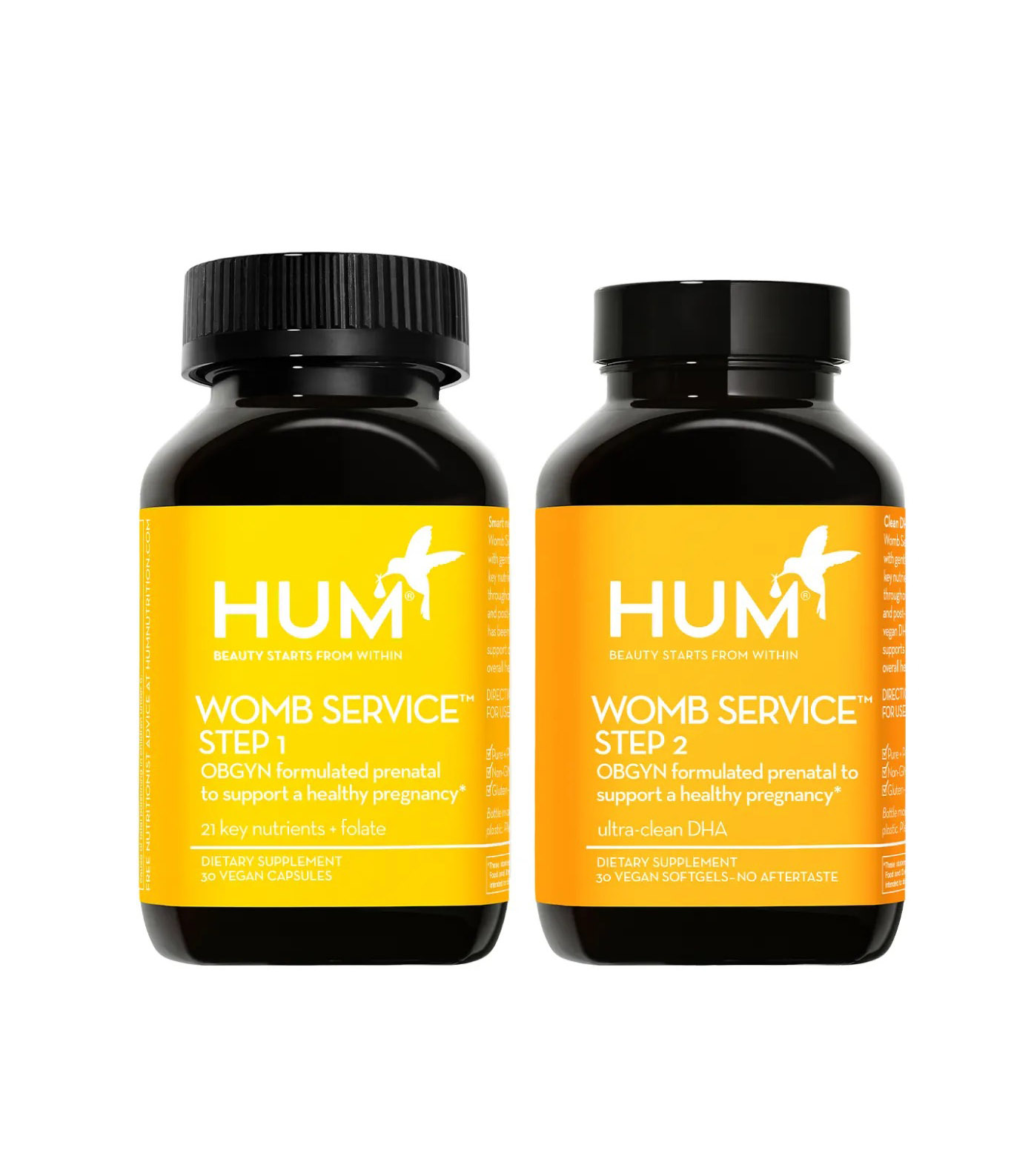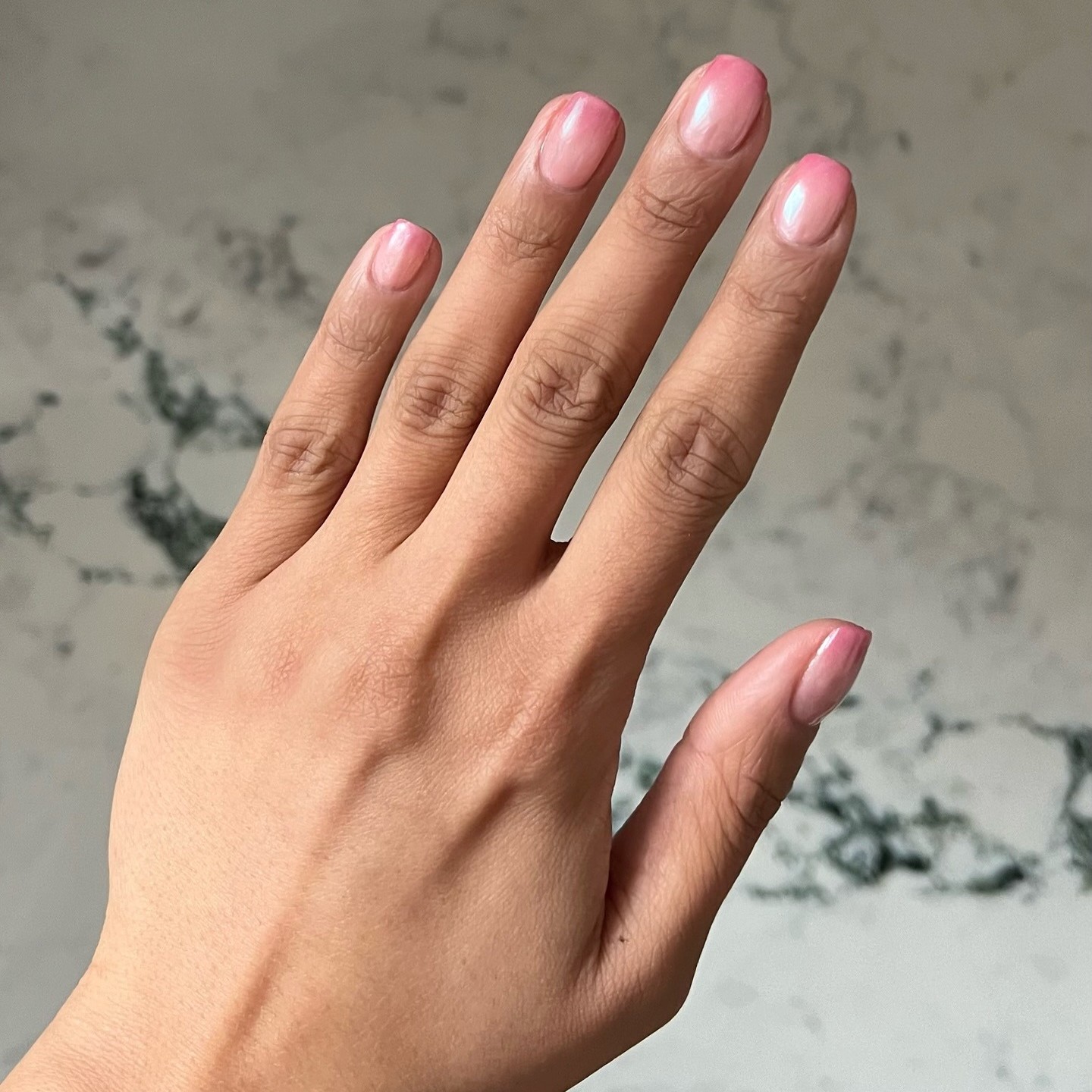FYI: This Vitamin Affects Your Skin, Immune System, and Eye Health
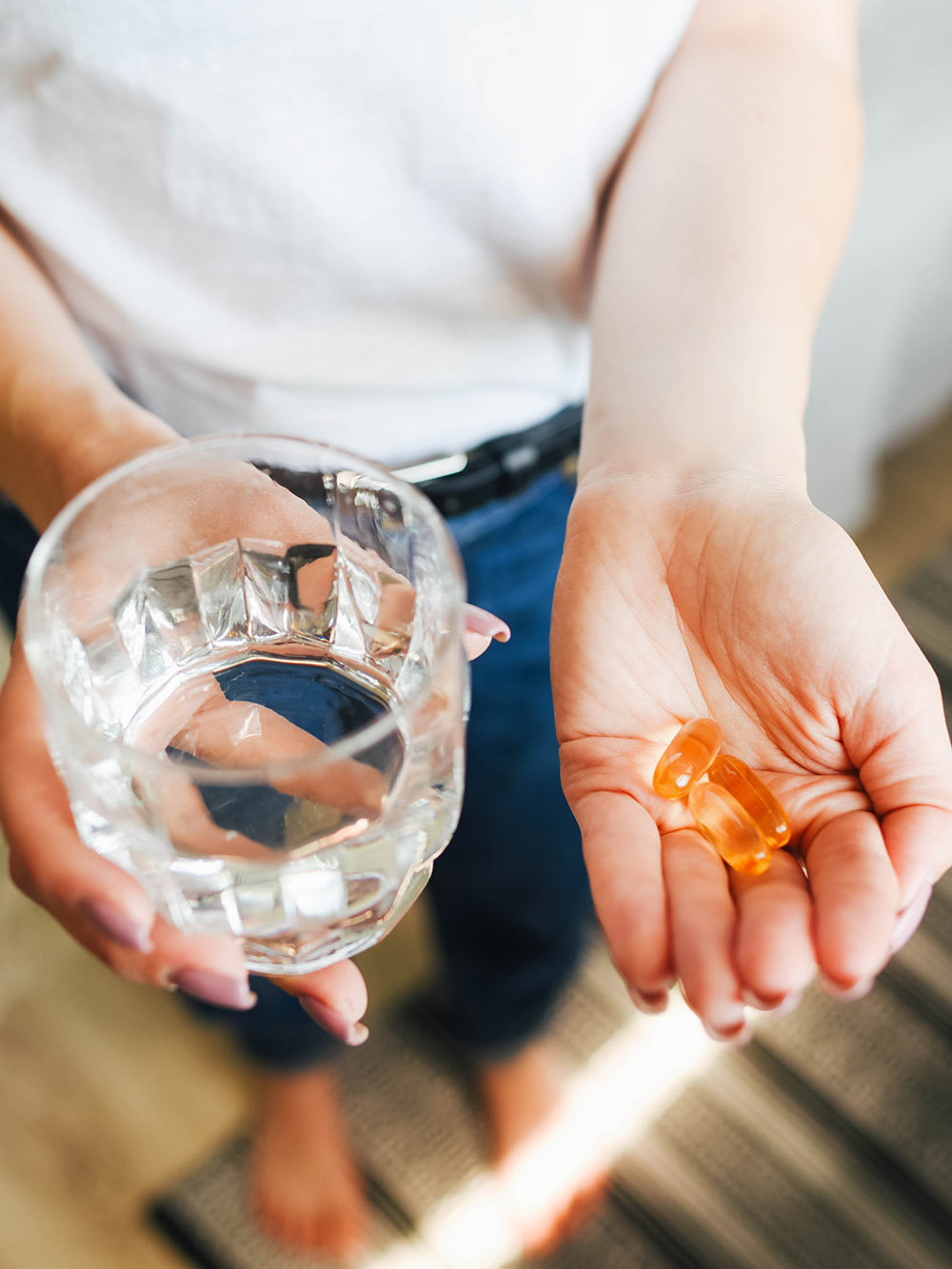
It can be hard to keep track of all the good-for-you vitamins and minerals out there and their benefits, especially if you're not a healthcare professional or nutritionist. I know I sometimes need a refresher—and I'm a wellness editor! But yes, you might know what vitamin C and vitamin D and zinc do, but maybe you're not quite sure about antioxidants or omega-3s or adaptogens. And that's okay, understanding the health and wellness world always takes some studying and research.
So today, we're going to take a look at vitamin A, a powerhouse vitamin with many benefits. "Vitamin A is a fat soluble nutrient which plays key roles in our immunity, eye health, skin health and cellular growth, including maintaining the integrity of our intestinal lining," says Mary Purdy, MS, RDN, Nutrition Expert & Sustainability Advisor and Educator at Big Bold Health. "While it's found naturally in foods like egg yolks, fortified dairy, cod liver oil and fish, in what is called 'pre-formed vitamin A,' the majority of food sources for most people are the bright orange fruits and vegetables and dark leafy greens which contain plant compounds called 'carotenoids" which get converted to vitamin A in the body." Another form of vitamin A that you might be familiar with is retinol, which can be found in animal products.
Jennifer Martin-Biggers, PhD, MS, RDN, VP of scientific affairs and education at Hum Nutrition, adds that vitamin A in the form of retinols are most easily absorbed and stored. "Carotenoids (like beta-carotene) are called 'provitamins' because they must be converted to retinol and other similar forms by the body and their conversion (aka absorption) is dependent on different things, like what else is present in the food and how effective a person's digestive and absorption capacity may be," she explains. "There are around 40 to 50 carotenoids in our foods, but more than 750 naturally occurring carotenoids in nature."
How Much Vitamin A Do You Need a Day

Martin-Biggers explains that vitamin A content in foods and supplements is measured in retinol activity equivalents (RAEs)—in general, 12mcg of beta carotene in a food is equivalent to 1mcg of retinol. "In the US, the recommended dietary allowance for vitamin A in adults over 19 years old is 700 mcg RAE for females and 900 mcg RAE for males each day. If you are pregnant or breastfeeding, your needs are increased," she says.
The good news is most people in the US get enough vitamin A to prevent diseases or conditions that occur from deficient intake, Martin-Biggers adds. But there are some groups of people that can put them at risk for deficiency, that includes having medical conditions that affect the absorption of fats, like celiac disease or inflammatory bowel conditions. One of the most common consequences of the deficiency is eye disease, like night blindness.
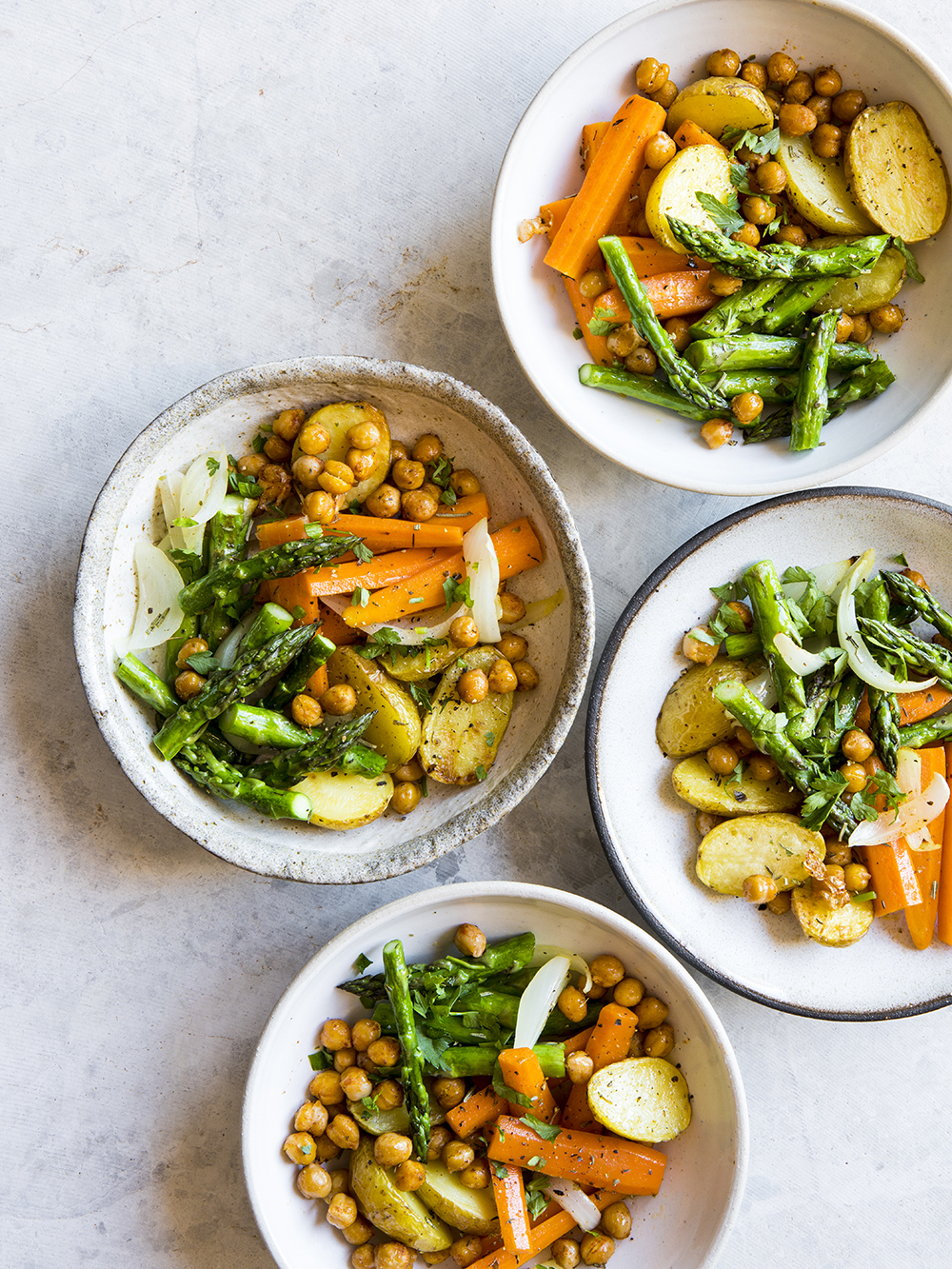
In short, if you have a diet full of variety of the good stuff (carrots, cantaloupe, squash, spinach, etc.), you're probably getting enough. But you'll want to make sure you're pairing these foods with healthy fats. "Additionally it's important to note that vitamin A is a fat-soluble vitamin, so it's necessary to consume food sources with some kind of fat in order to facilitate optimal absorption," Purdy says. "Eating raw carrots or a lovely spinach salad alone may not provide as high of a dosage as combining those foods with a fat source like olive oil or nuts. Additionally, a growing body of evidence indicates that levels of healthy plant chemicals like carotenoids tend to be higher in produce that has been grown using fewer chemical fertilizers and pesticides. Turns out, the health of the soil can make a big difference on the nutritional quality of our food."
And Martin-Biggers adds that some forms of carotenoids in foods, like lycopene in tomatoes, are actually easier to absorb if it's cooked, so prepare your foods with that in mind.
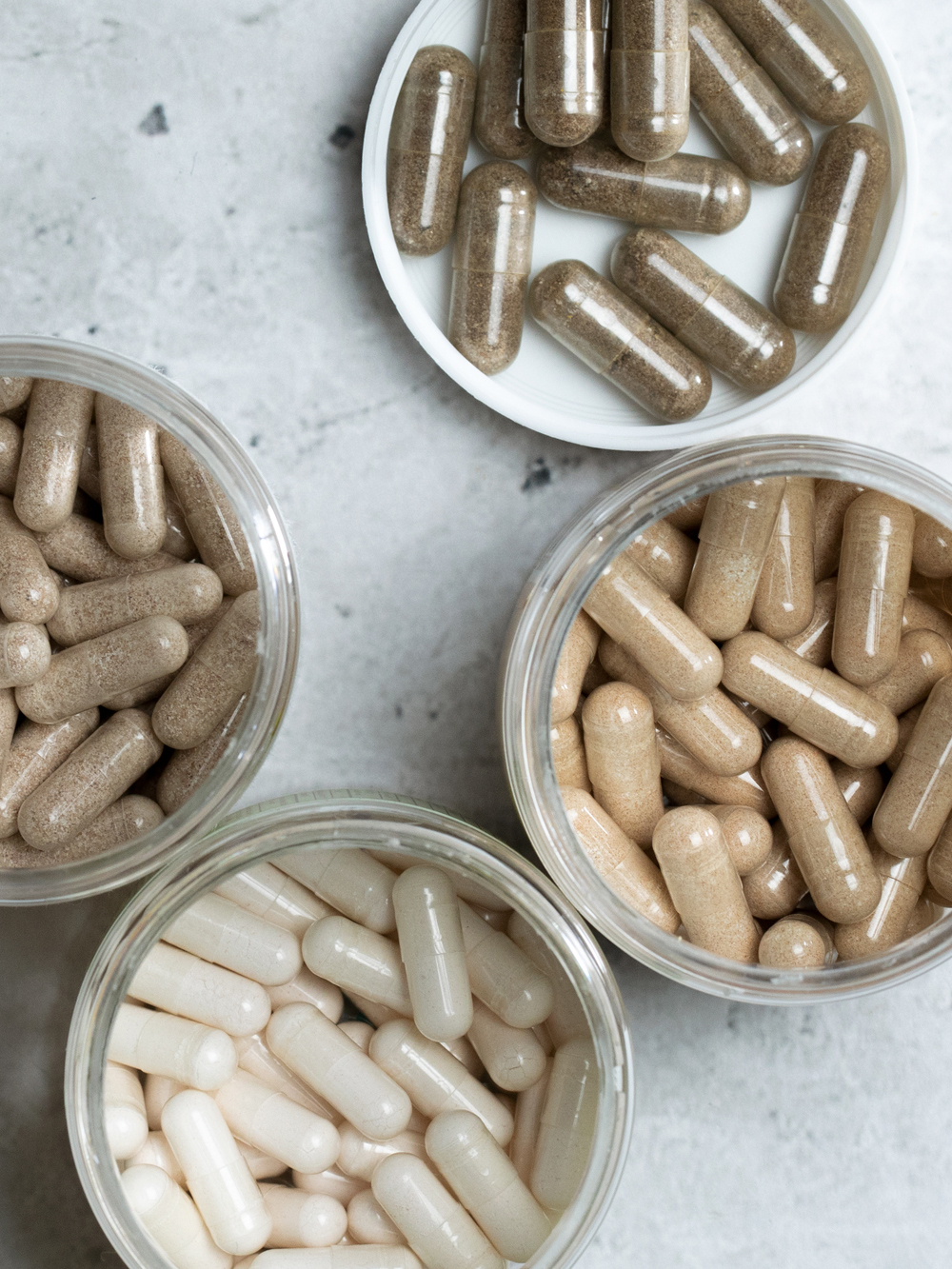
If you do find you need to supplement, you'll want to discuss your options with your healthcare providere. Purdy says that doses higher than 10,000 IUs (3,000mcgs) of pure vitamin A in supplement form can be toxic to the body.
And there are some groups of people who should be very cautious about taking vitamin A supplements. "Smokers should not take beta carotene supplements as it increased lung cancer risk in a study of long term supplementation," Martin-Biggers says. "Pregnant women should be aware to not consume too much preformed vitamin A (will be on a facts panel as retinol or retinyl ester/acetate) in the form of 750 mcg RAE per day—especially in the first 60 days after conception. Vitamin A in the form of beta-carotene, however, is okay. Hum Nutrition's Womb Service contains a mix of vitamin A in the form of retinol acetate and beta carotene in levels that are safe for daily intake during pre- and post-pregnancy."
When shopping for a supplement, read the labels carefully and look for any certifications that can tell you it's high-quality vitamin. "In a multivitamin, I recommend looking for 100% daily value for retinol activity equivalents," Martin-Biggers says. "I also strongly recommend exploring the benefits of vitamin A supplements with carotenoids, like lutein and lycopene. The carotenoids may be listed separately from vitamin A on a facts panel."
Take a look at some options below.
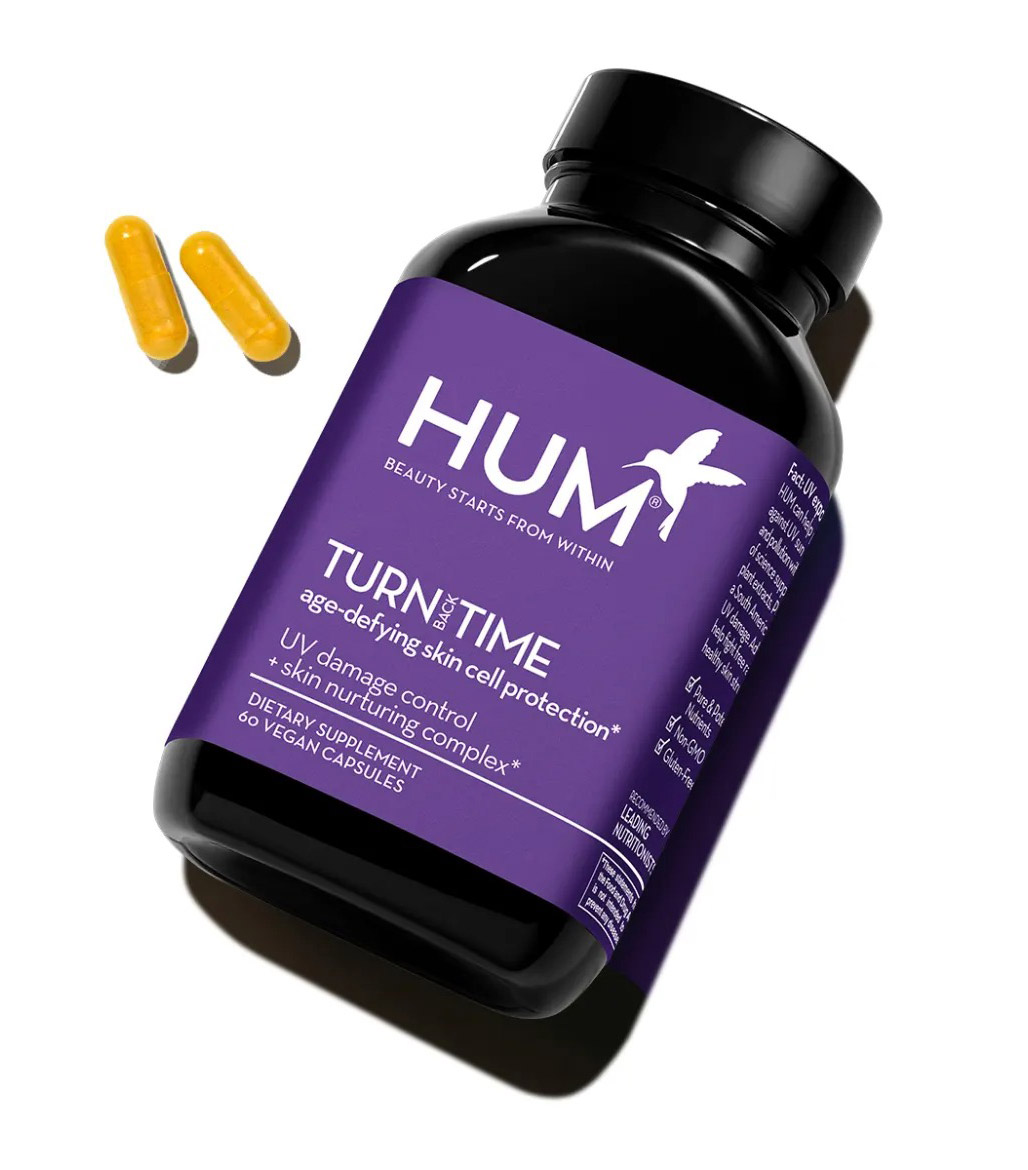
"I love a supplement that has carotenoids, especially Turn Back Time! As someone with fair, freckled skin, incorporating lutein to help control UV damage is a must in my daily regimen," Martin-Biggers says.
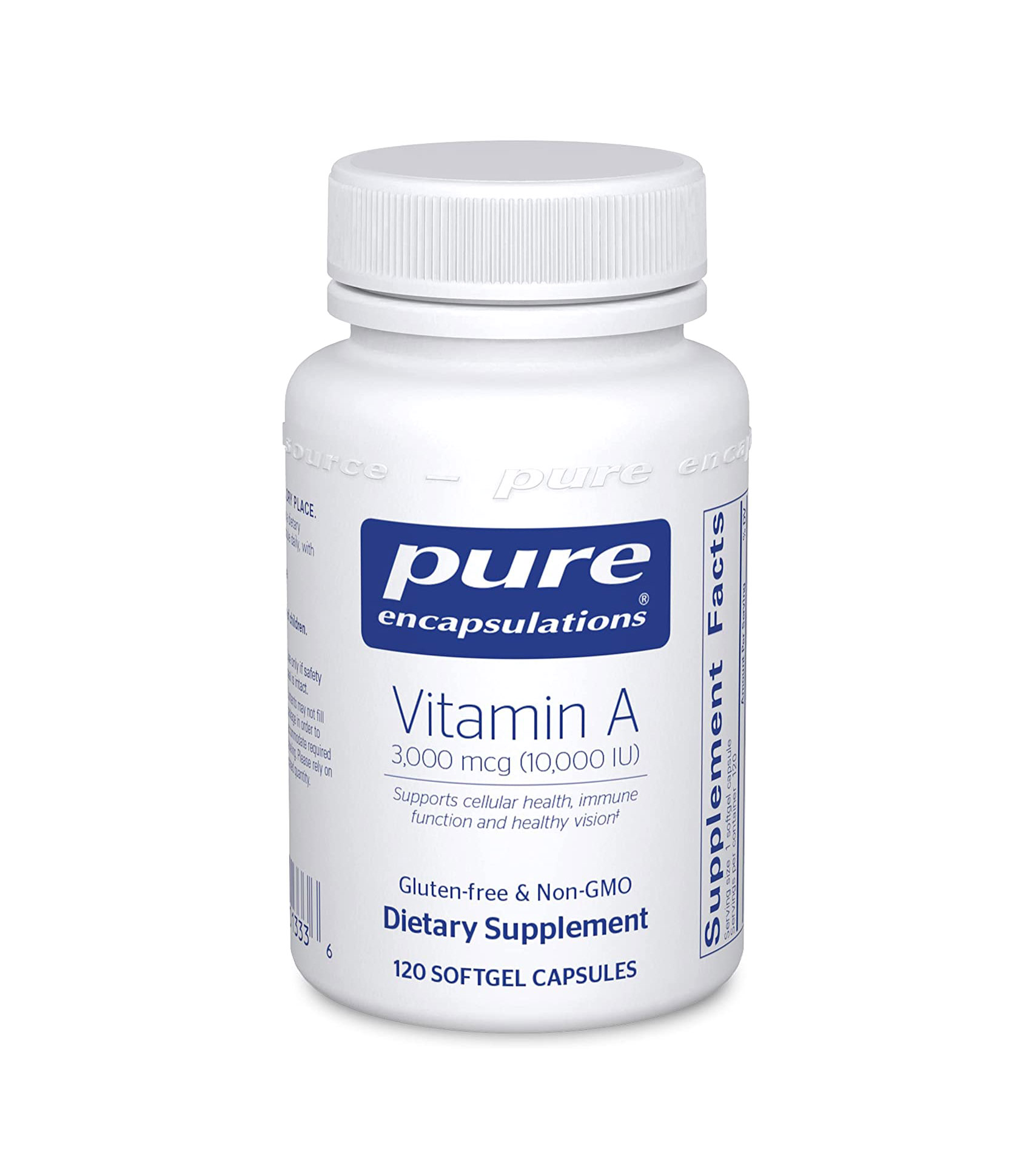
Pure Encapsulations's vitamin A supplement contains high-quality ingredients and is gluten-free and non-GMO.
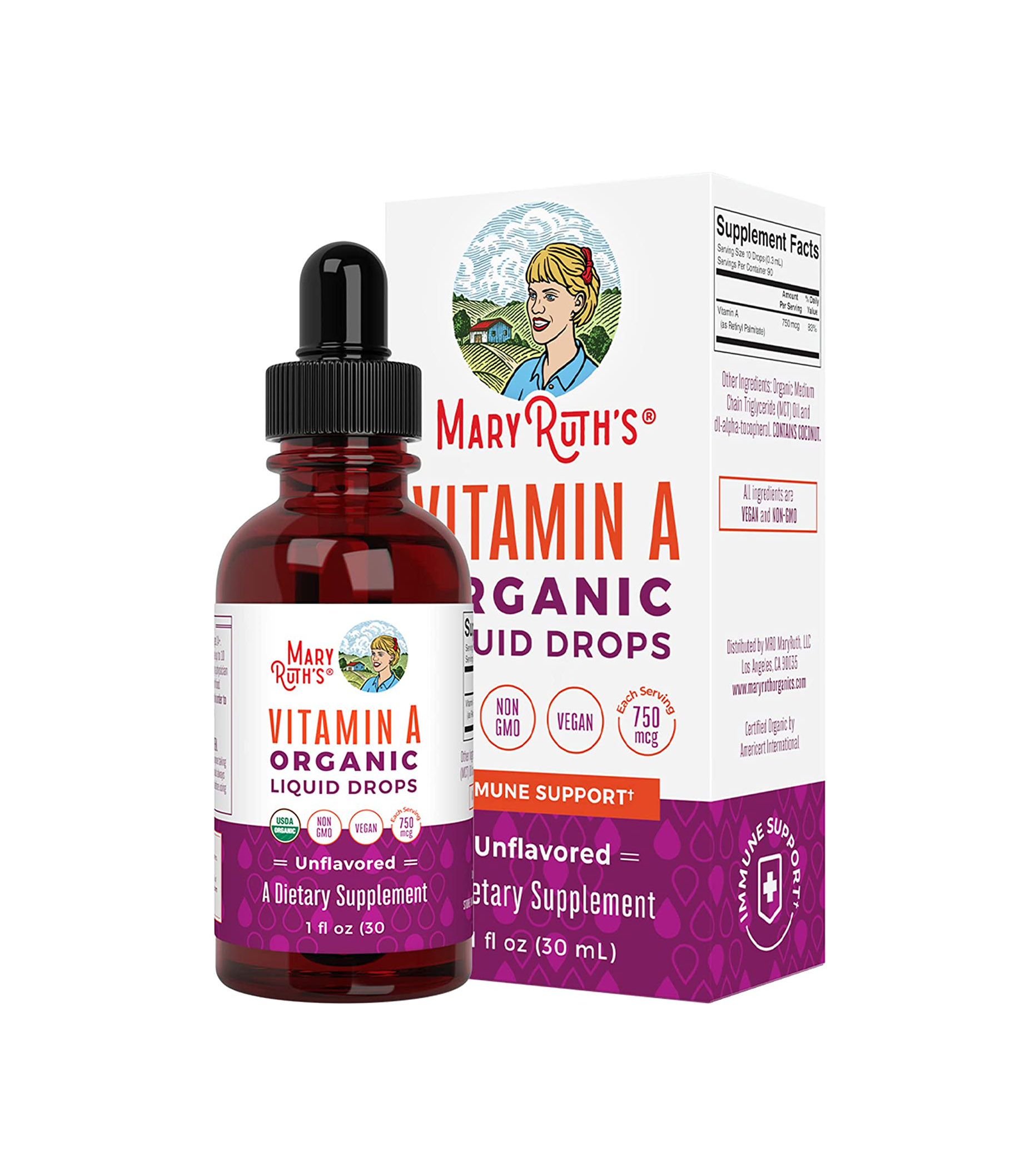
If you don't love capsules or pills, you can also get your vitamin A in liquid form. One serving is 750mcg of vitamin A (10 drops). You can take it by mouth or add to water, juice, or a smoothie—it's unflavored so you won't have to worry about a weird taste.
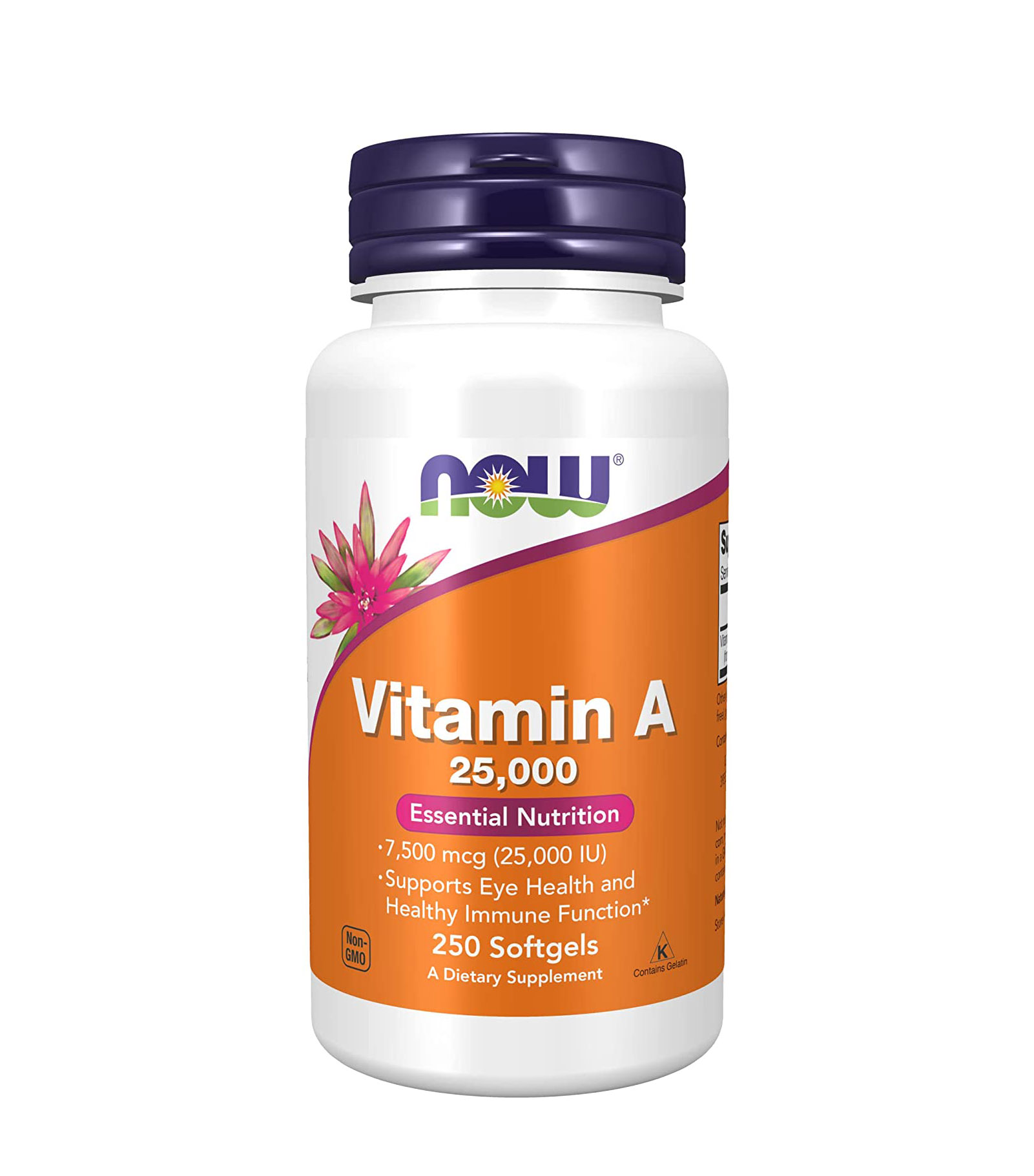
This softgel supports eye health and immune function. It contains gelatin, but is free of corn, dairy, egg, gluten, and soy.
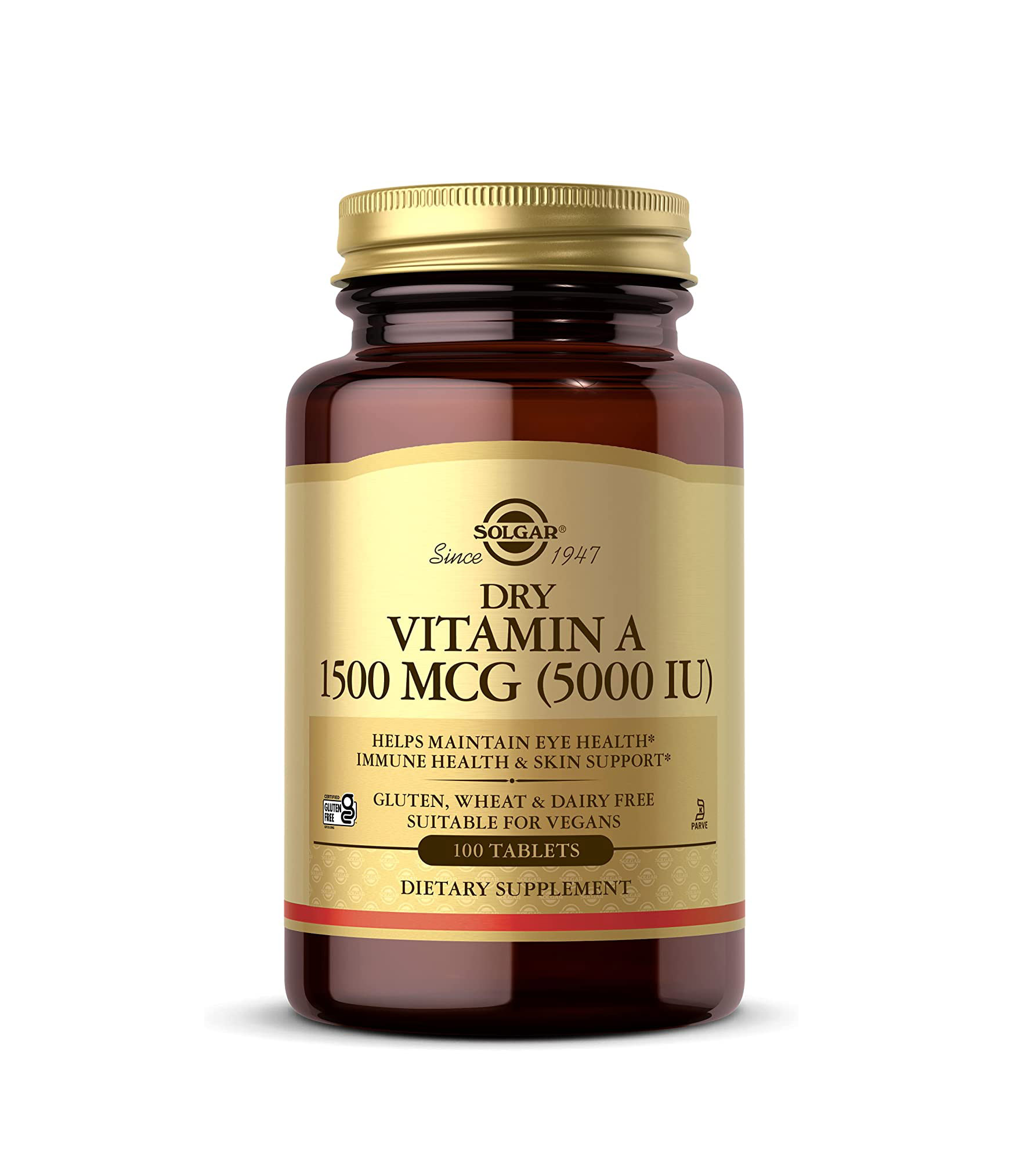
Solgar's supplement is dry, which means it's not oil-based, which can be good for some people who have trouble with those types of capsules.
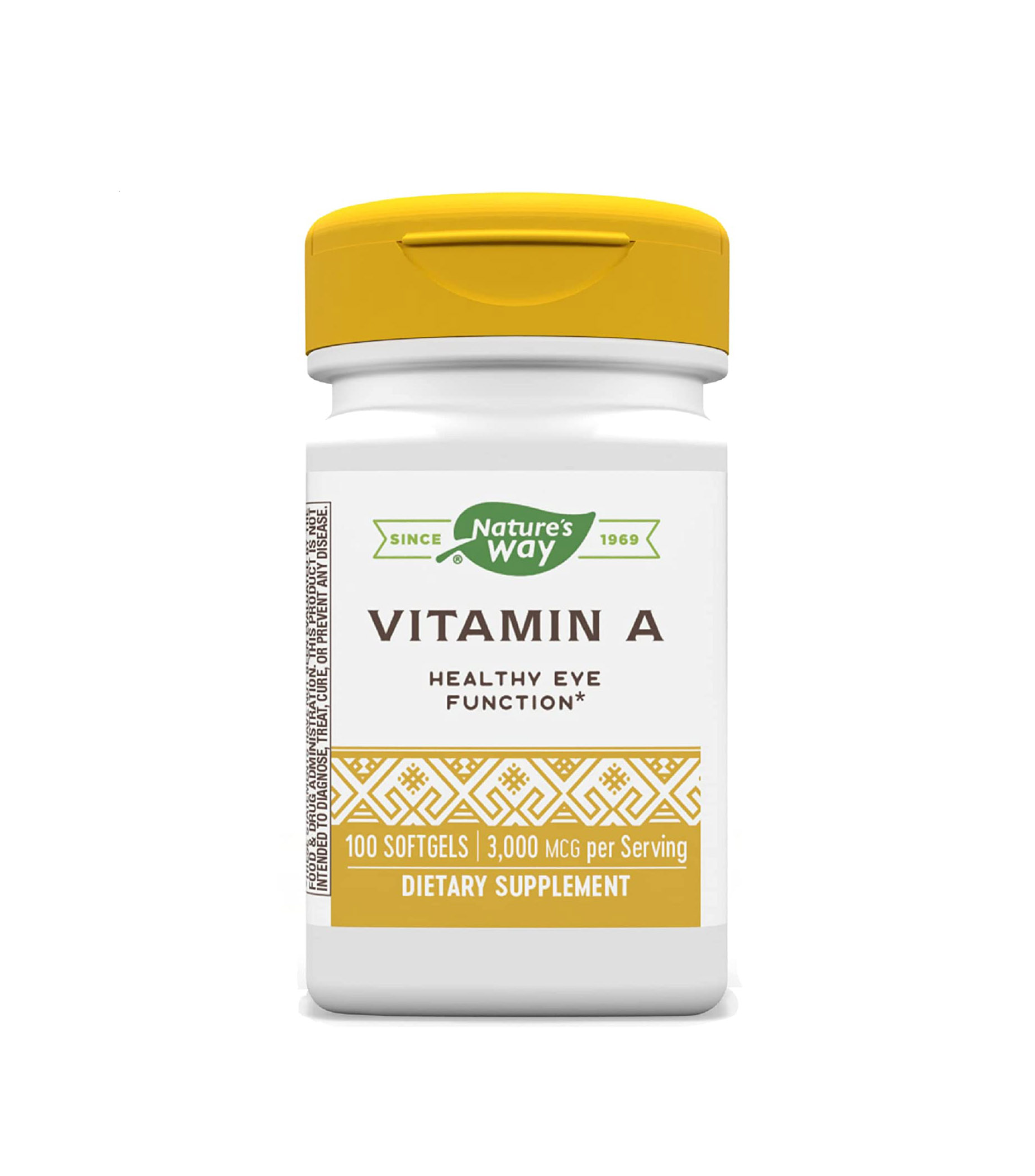
In addition to eye health benefits, you also get powerful antioxidant protection with these capsules.
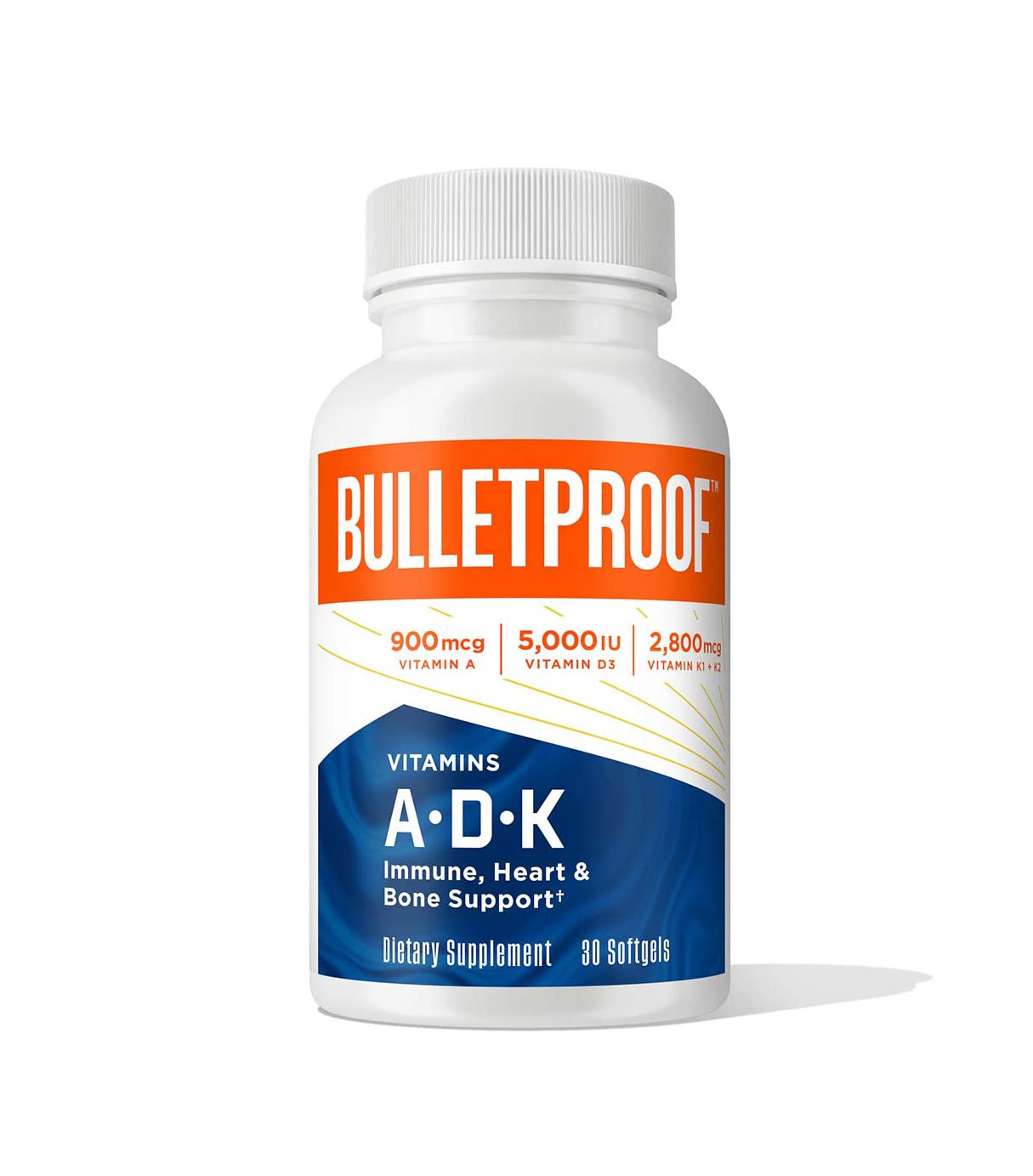
Consider this one a 3-in-1. It's a blend of vitamins A, D, and K to support bone, heart, and immune health. It also contains brain octane C8 MCT oil for better absorption.
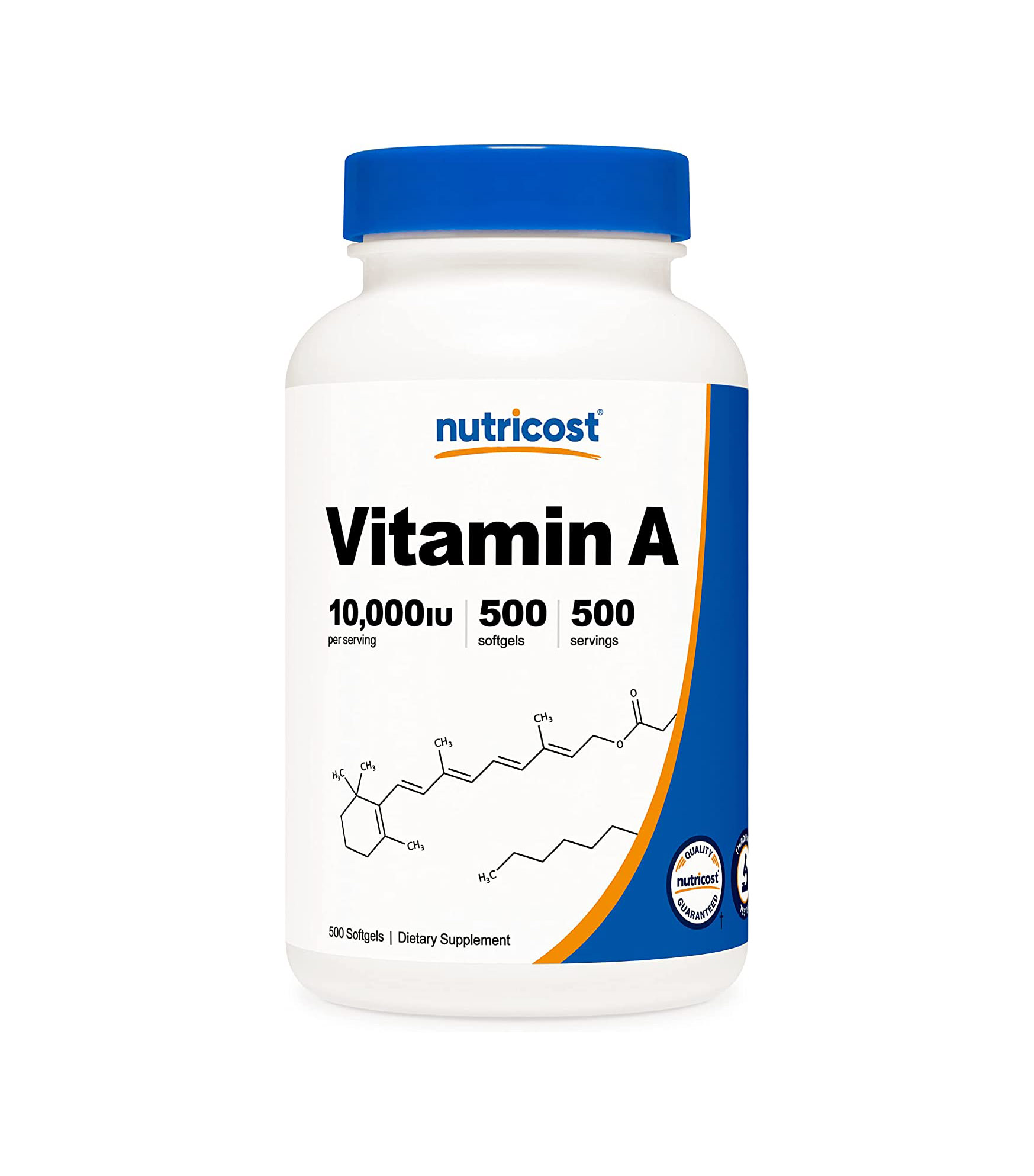
These softgels are non-GMO, gluten-free, and have underwent third-party testing for quality.
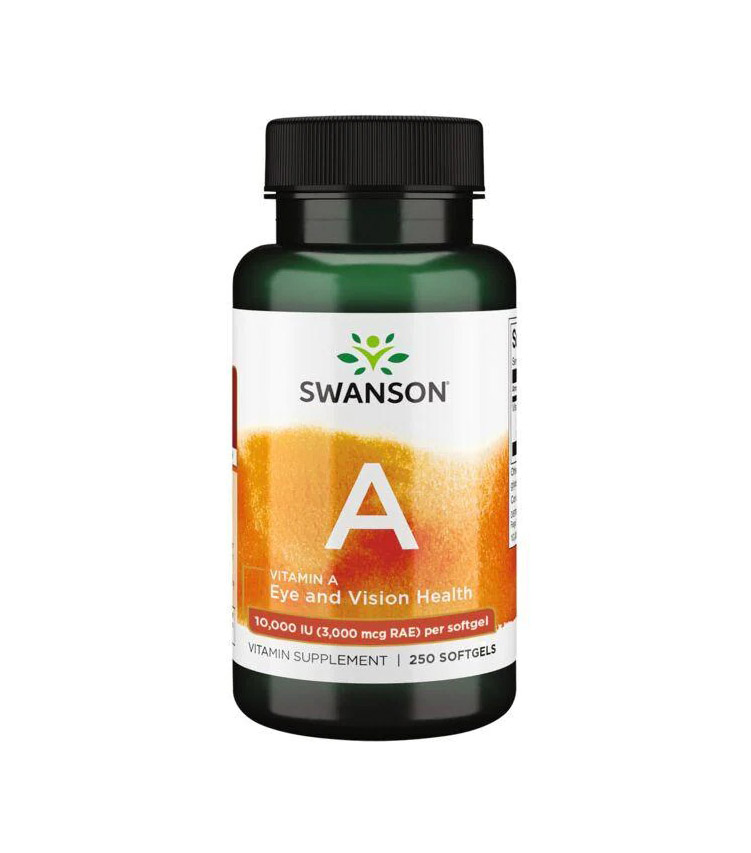
Swanson's vitamin A is derived from cod liver oil and is packed in any easy-to-swallow and highly absorbable soft gel.
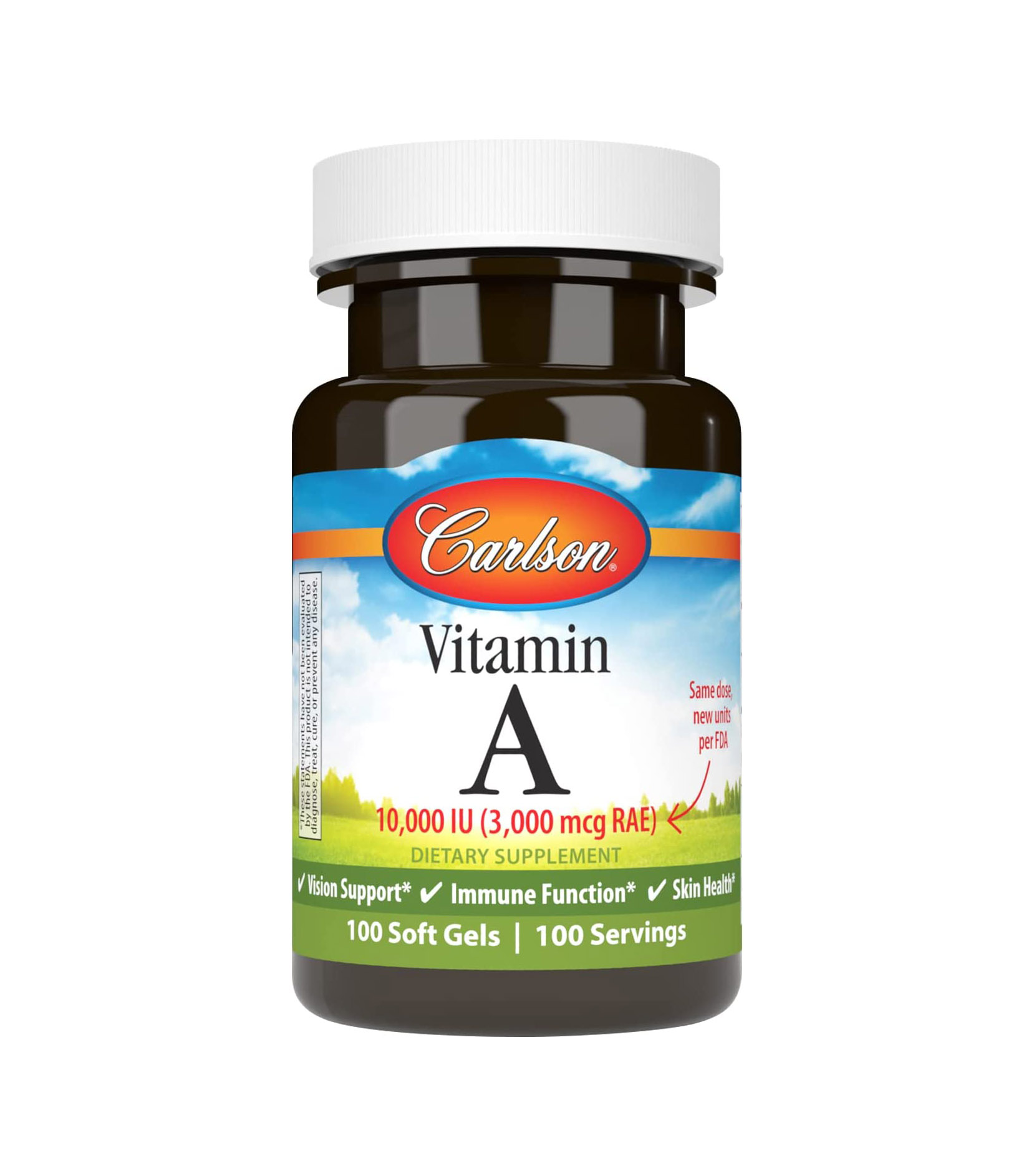
Part of this vitamin A supplement's vision benefits include helping the eyes adapt to light changes.
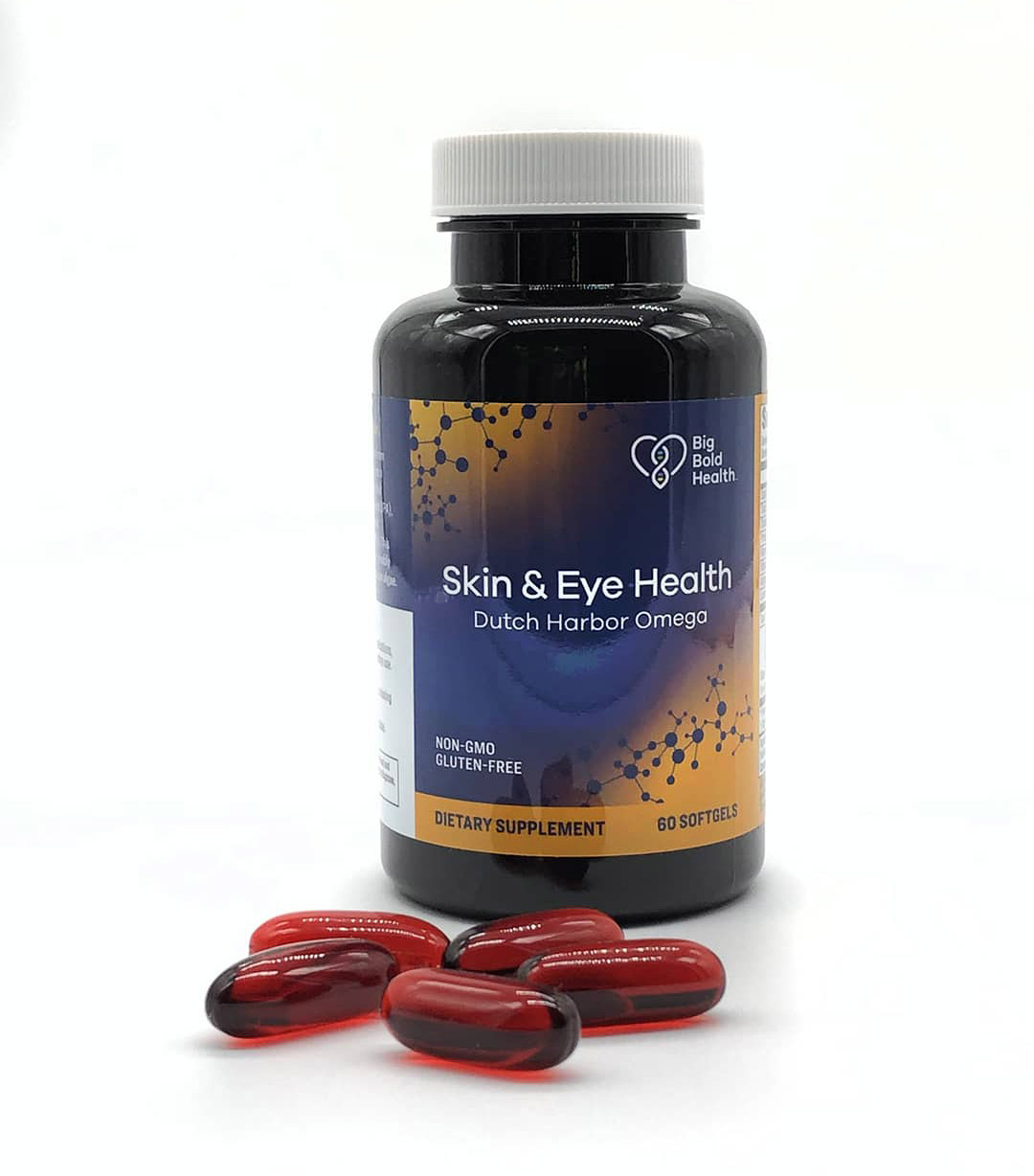
These softgels contain omega-3 fatty acids, vitamin A, vitamin D, and astaxanthin to support healthy skin and eyes.
Other Multivitamin Options to Shop
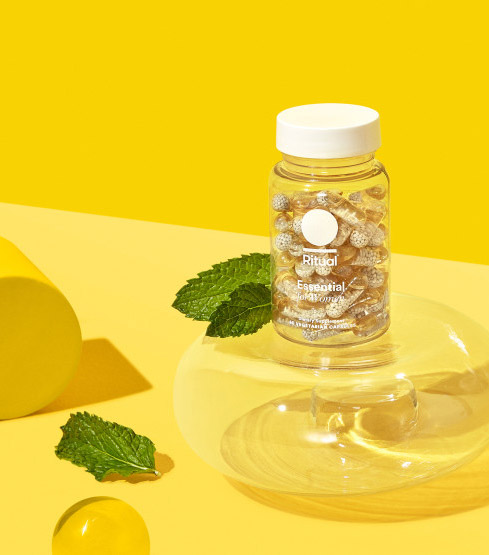
Our editors are big fans of Ritual's multivitamin. It's formulated with folate, omega-3 DHA, vitamin B12, vitamin D, iron, vitamin K2, boron, vitamin E, and magnesium.
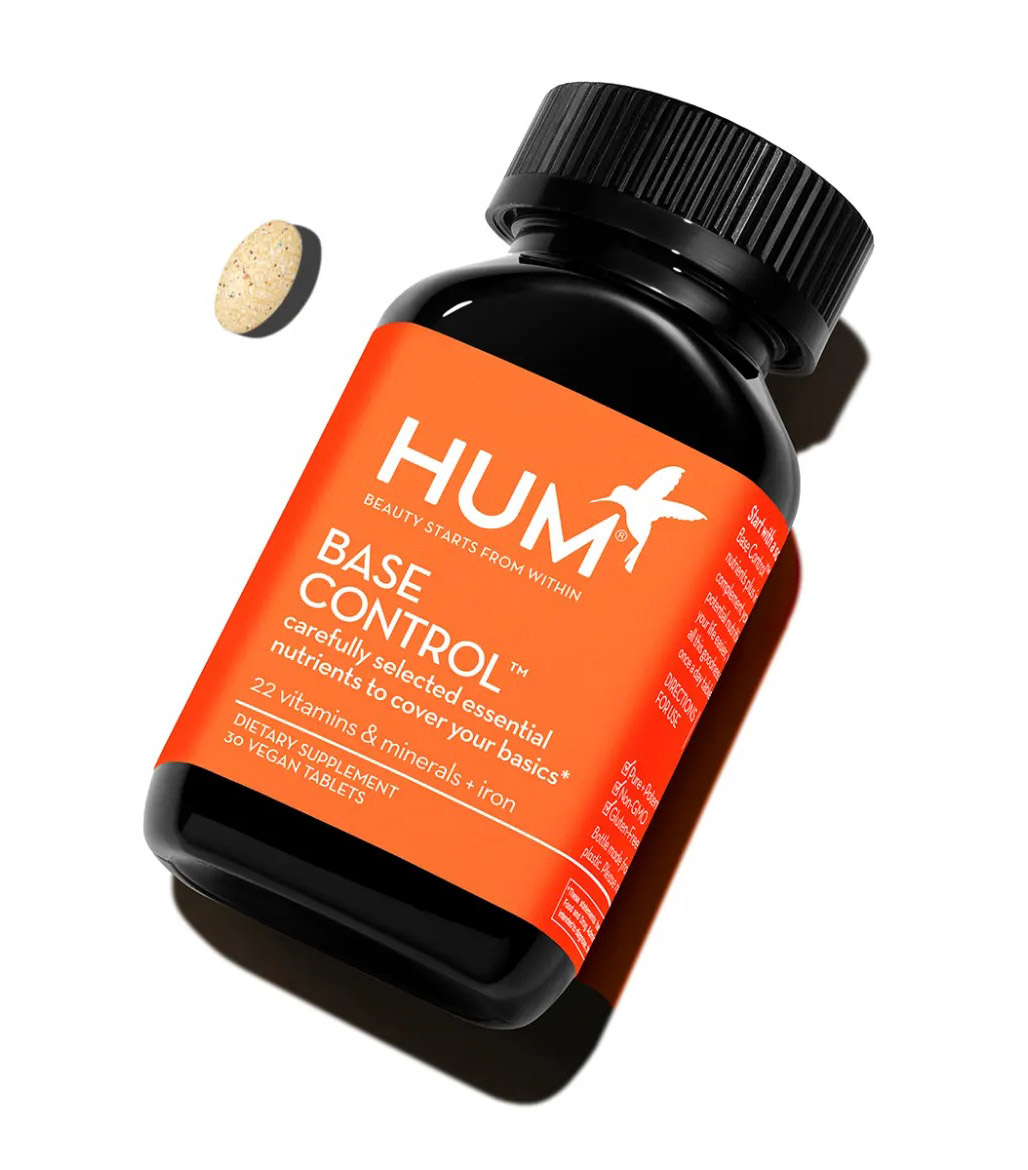
Hum Nutrition's daily multivitamin contains 22 vitamins and minerals to fill any gaps in your routine. It's also enriched with iron to promote red blood cell production, which is helpful for women pre-menopause.
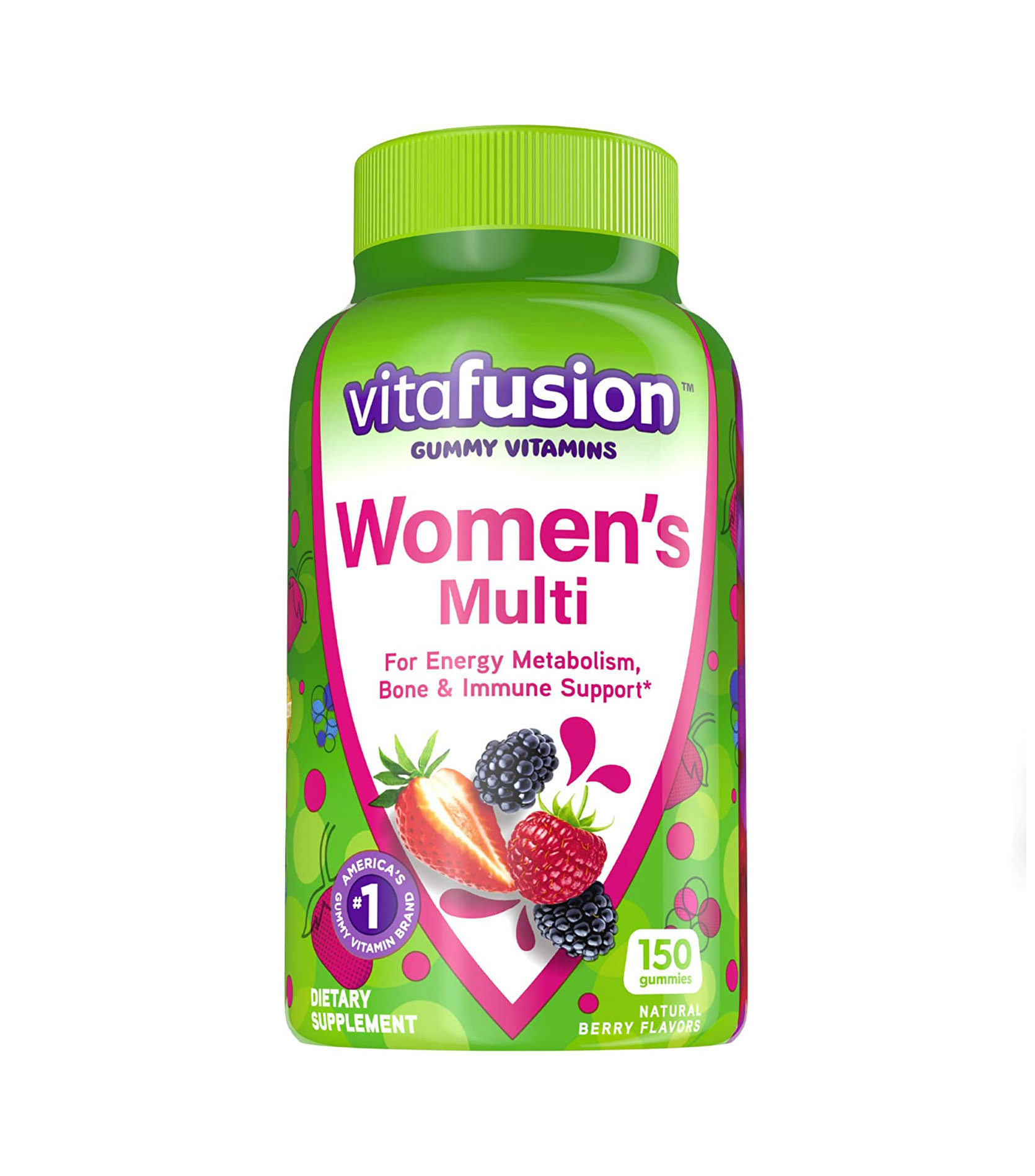
Want to get your multivitamin in gummy form? Vitafusion's version is highly rated on Amazon. It's formulated with vitamins A, C, D, E, B6, B12, biotin, zinc, and folate.
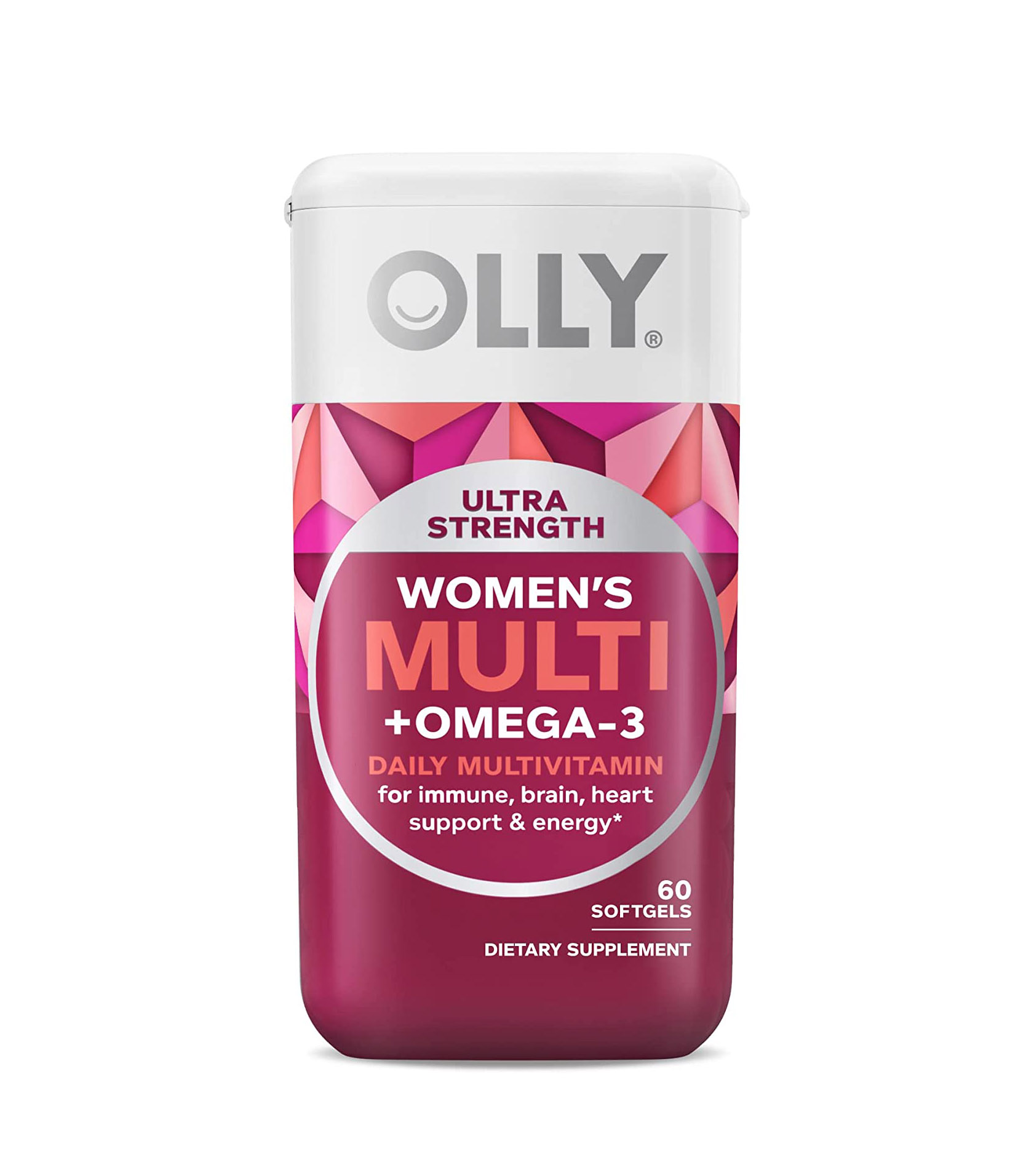
These softgel multivitamins also contain omega-3 to support brain, nervous system, and eye function.
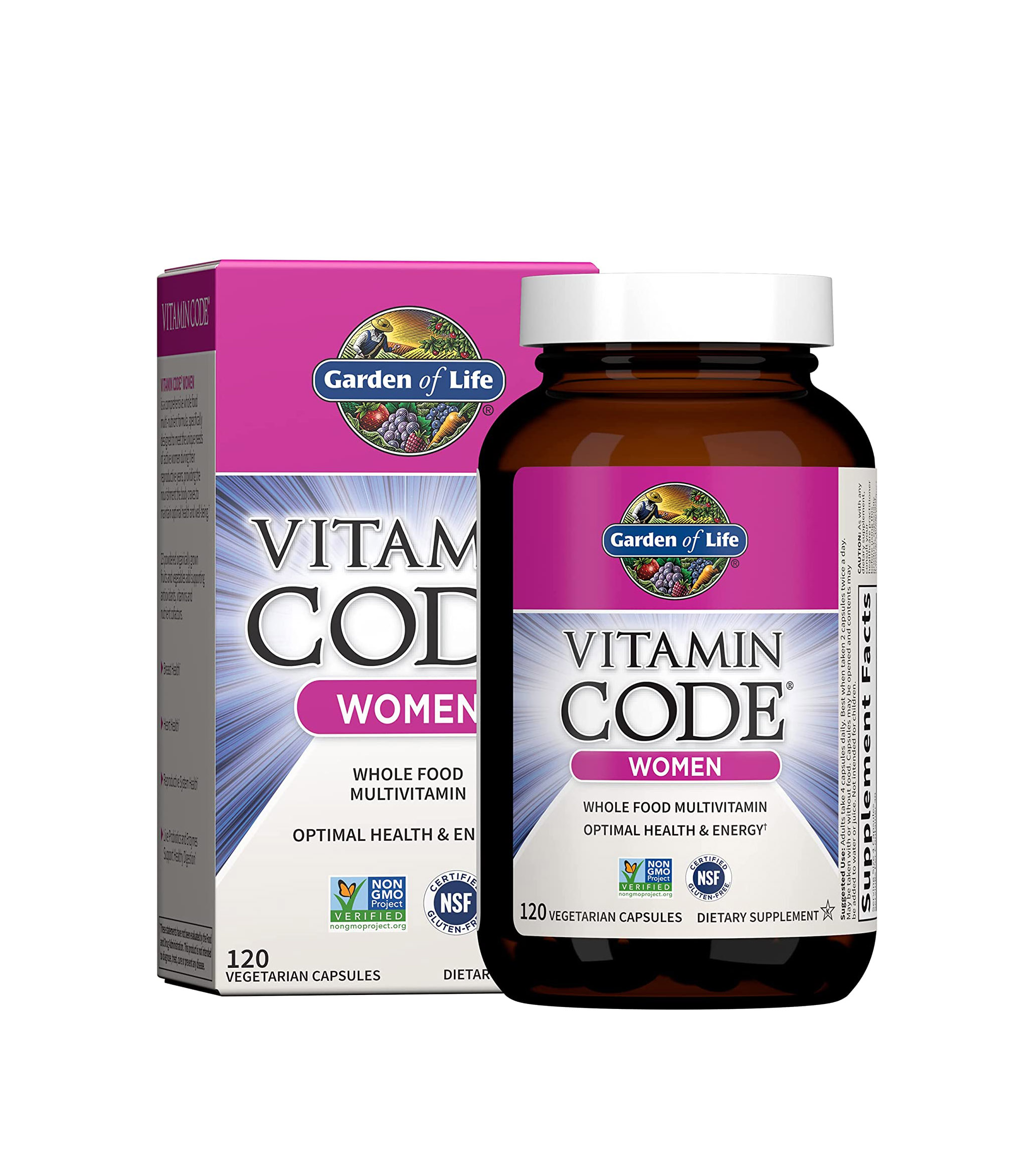
There are 17 vitamins and minerals packed in this multivitamin. It even features raw probiotics to support digestion and gut health.
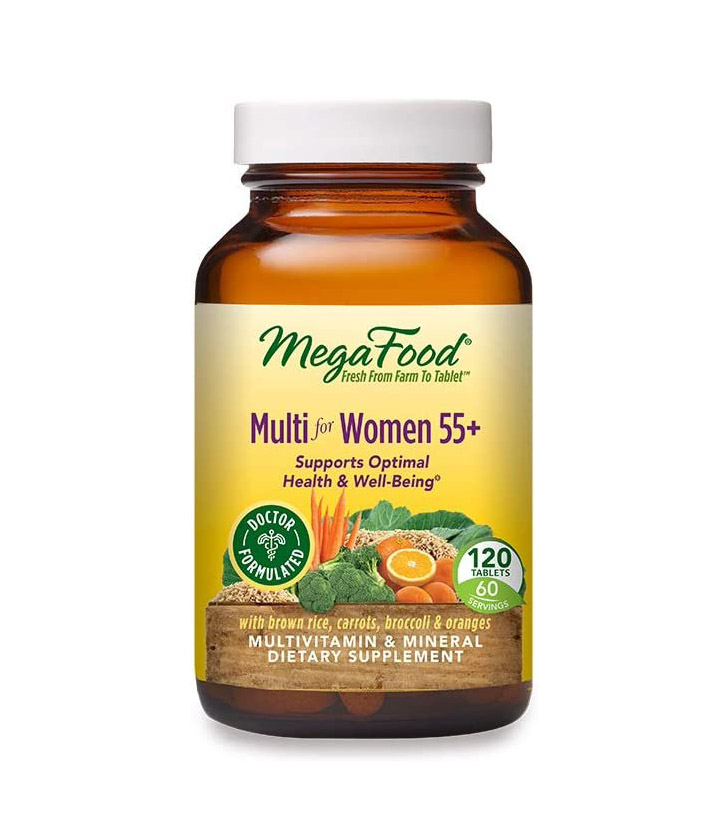
This is a great option for women over 55—it's formulated specifically for them, with nutrients like B vitamins to promote healthy cellular energy and cardiovascular function and choline to support cognition and memory function.
Next, This Fatigue-Fighting Solution Might Be Better Than a Cup of Coffee
Disclaimer
This article is provided for informational purposes only and is not intended to be used in the place of advice of your physician or other medical professionals. You should always consult with your doctor or healthcare provider first with any health-related questions.
Sarah is lifestyle writer and editor with over 10 years of experience covering health and wellness, interior design, food, beauty, and tech. Born and raised in Los Angeles, she attended New York University and lived in New York for 12 years before returning to L.A. in 2019. In addition to her work at Who What Wear, she held editor roles at Apartment Therapy, Real Simple, House Beautiful, Elle Decor, and The Bump (sister site of The Knot). She has a passion for health and wellness, but she especially loves writing about mental health. Her self-care routine consists of five things: a good workout, “me” time on the regular, an intriguing book/podcast/playlist to unwind after a long day, naps, and decorating her home.
-
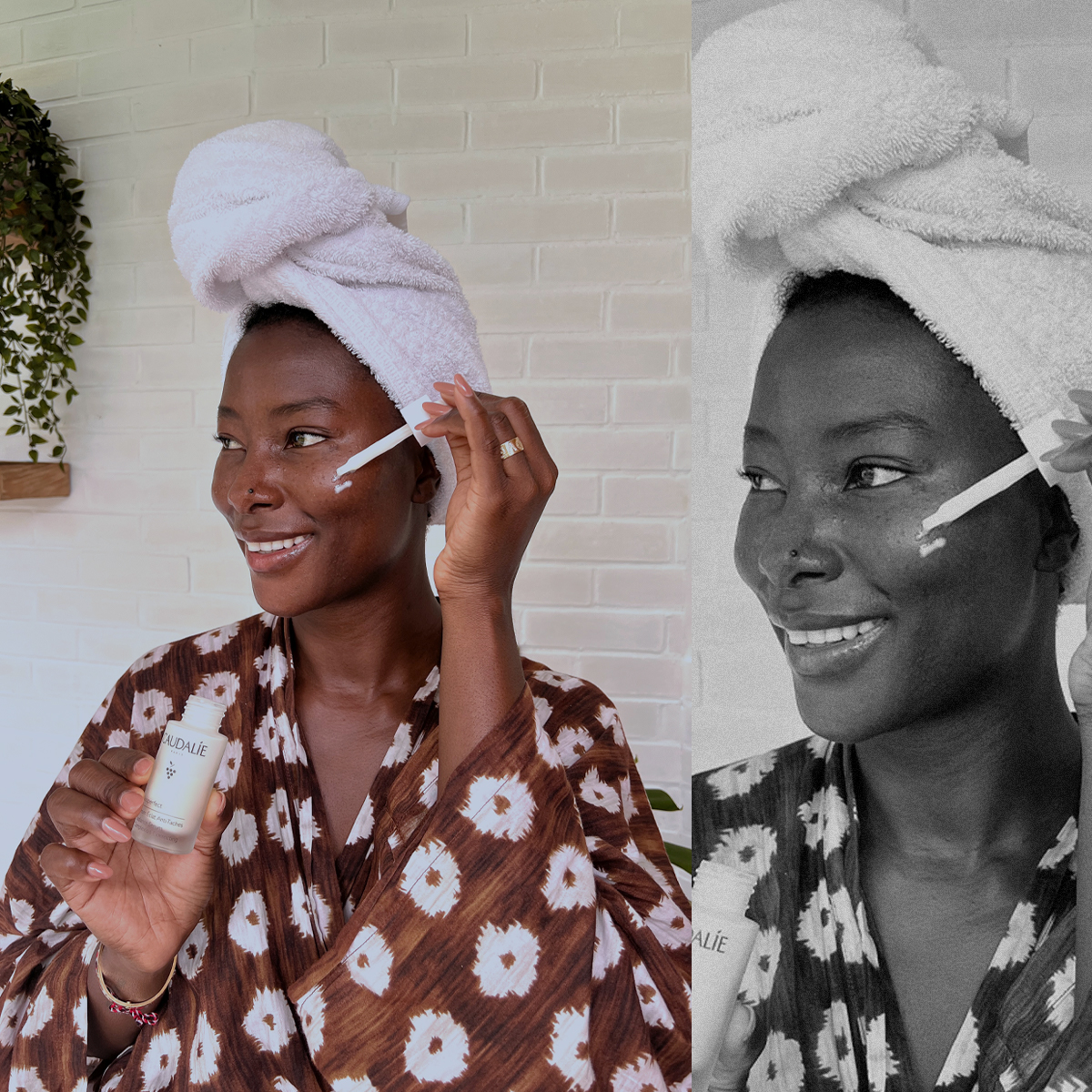 This Beauty Blogger's Wind-Down Routine Is Anything But a Snooze
This Beauty Blogger's Wind-Down Routine Is Anything But a SnoozeSee her go-to workout and her favorite vitamins.
By Virginia Yapp
-
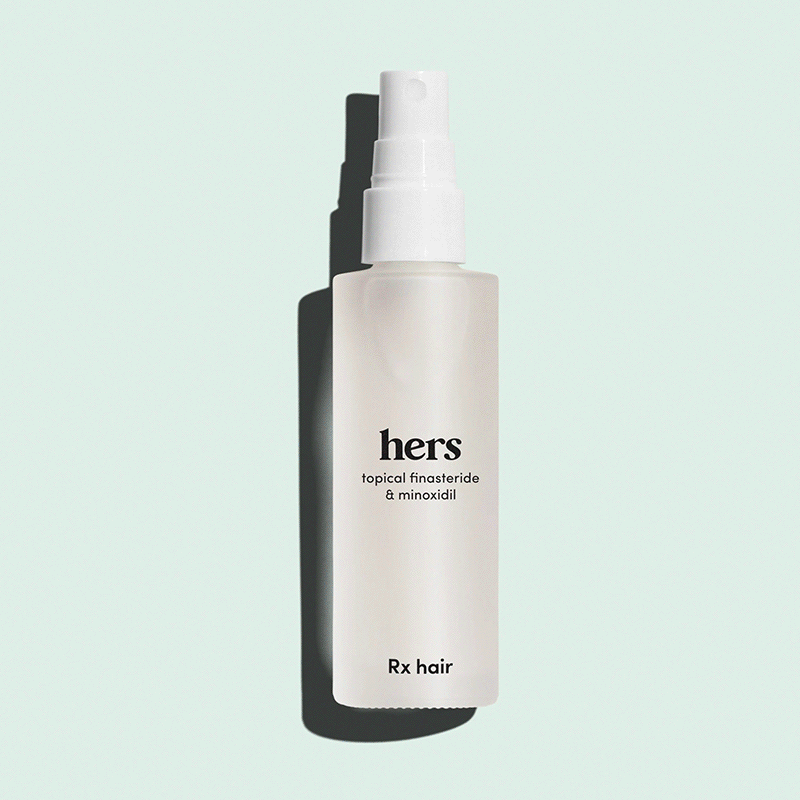 13 Products That Will Step Up Your Self-Care Game From Home
13 Products That Will Step Up Your Self-Care Game From HomeGet that glow from within.
By Natalie Gray Herder
-
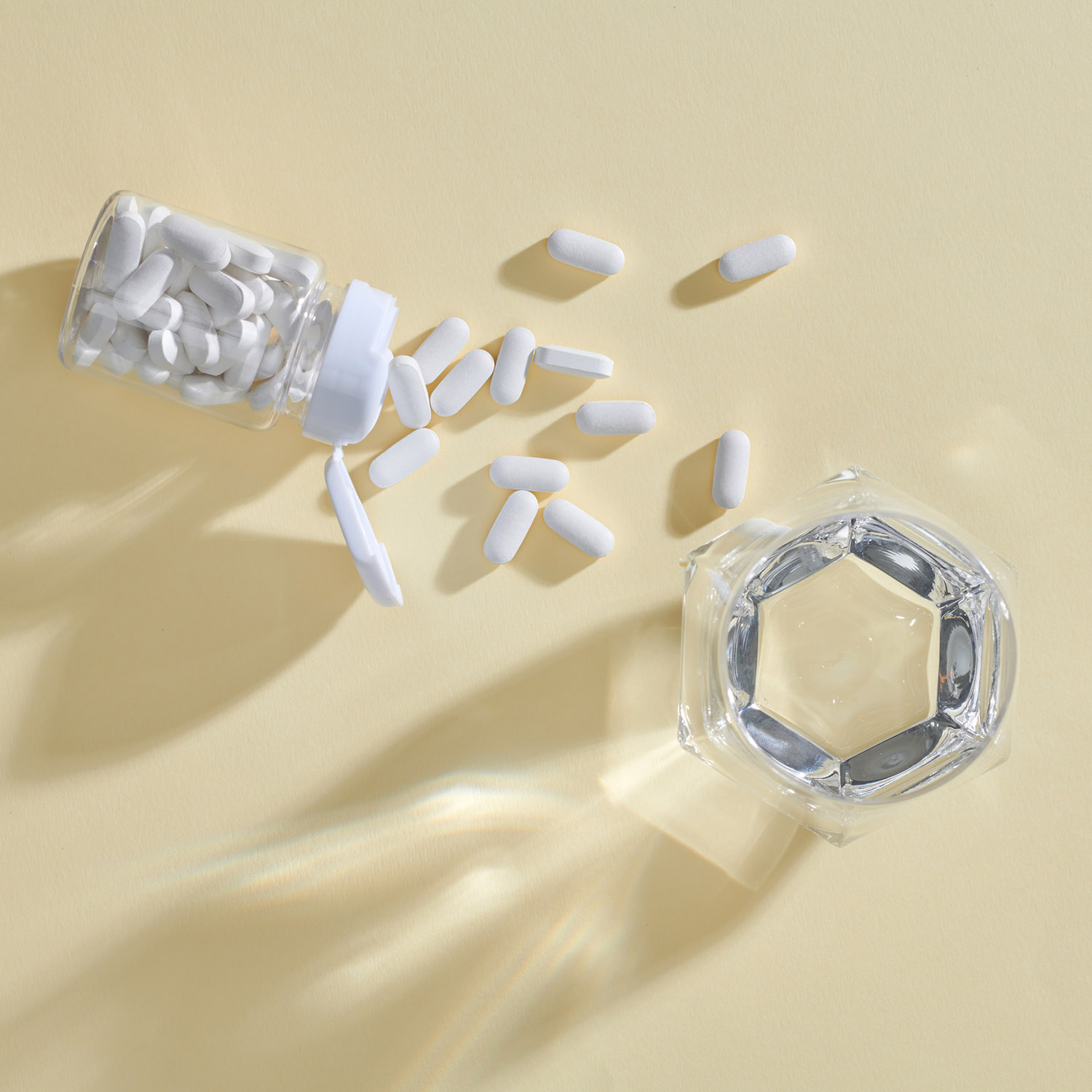 Don't Forget This Vital Ingredient When It Comes to Gut Health
Don't Forget This Vital Ingredient When It Comes to Gut HealthIt's crucial.
By Sarah Yang
-
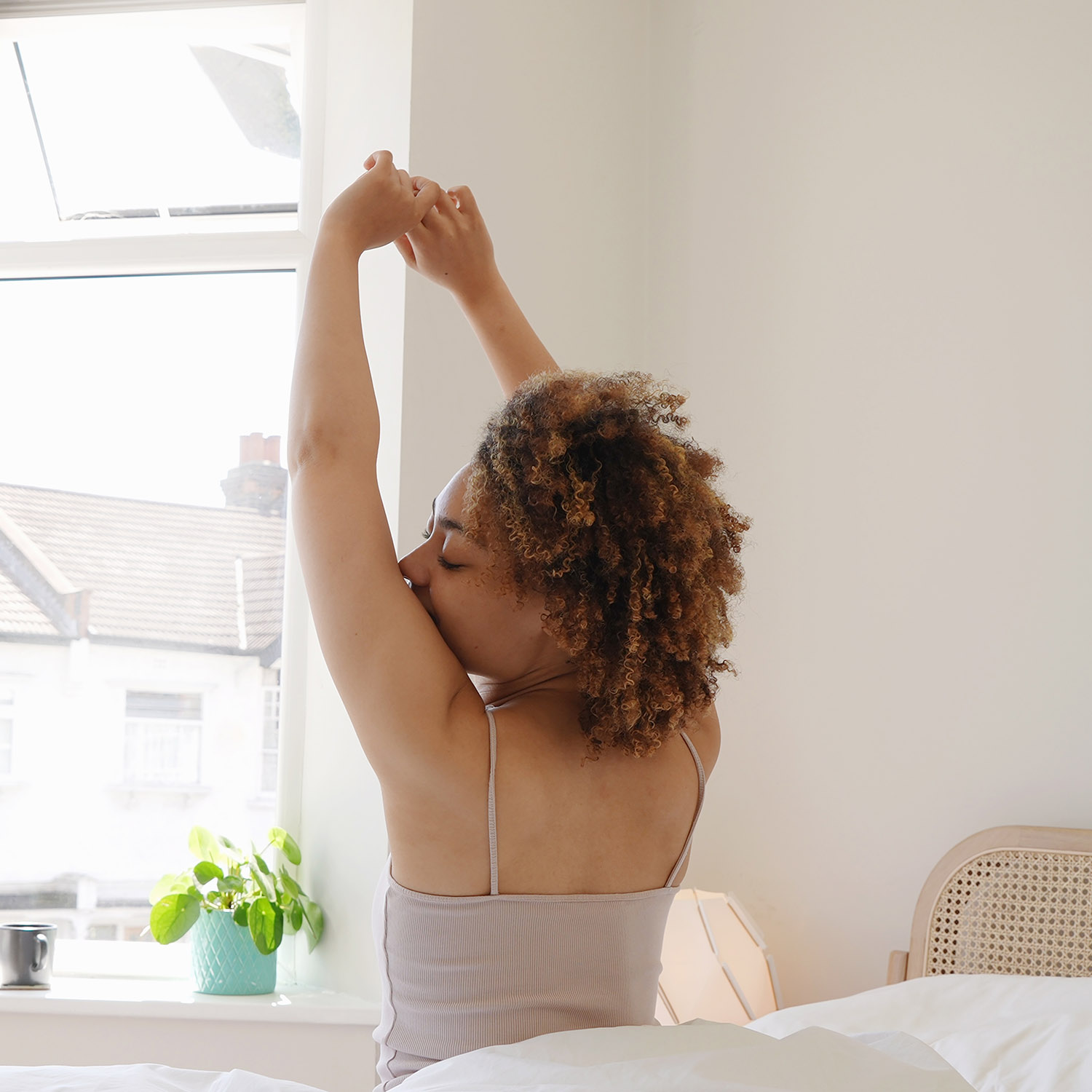 This Fatigue-Fighting Solution Might Be Better Than a Cup of Coffee
This Fatigue-Fighting Solution Might Be Better Than a Cup of CoffeeIt will give you a boost.
By Sarah Yang
-
 Taking This Supplement Improves Sleep, Regulates Blood Pressure, and More
Taking This Supplement Improves Sleep, Regulates Blood Pressure, and MoreIt's an essential mineral.
By Sarah Yang
-
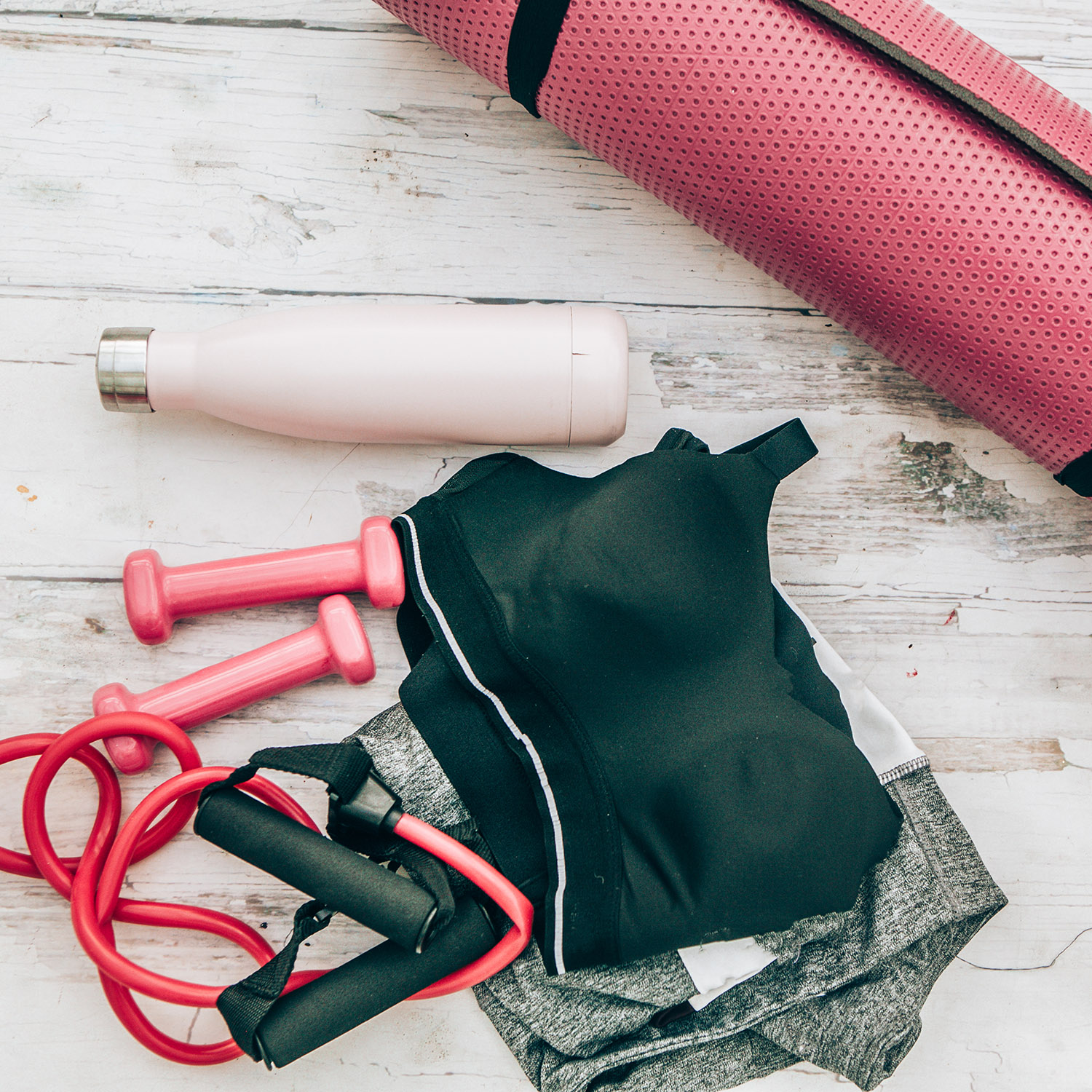 The Only Wellness Deals Worth Buying on Amazon Prime Day
The Only Wellness Deals Worth Buying on Amazon Prime DayTime to shop.
By Sarah Yang
-
 Taking This Daily Supplement Can Give You Whole-Body Protection
Taking This Daily Supplement Can Give You Whole-Body ProtectionAre you getting enough of it?
By Sarah Yang
-
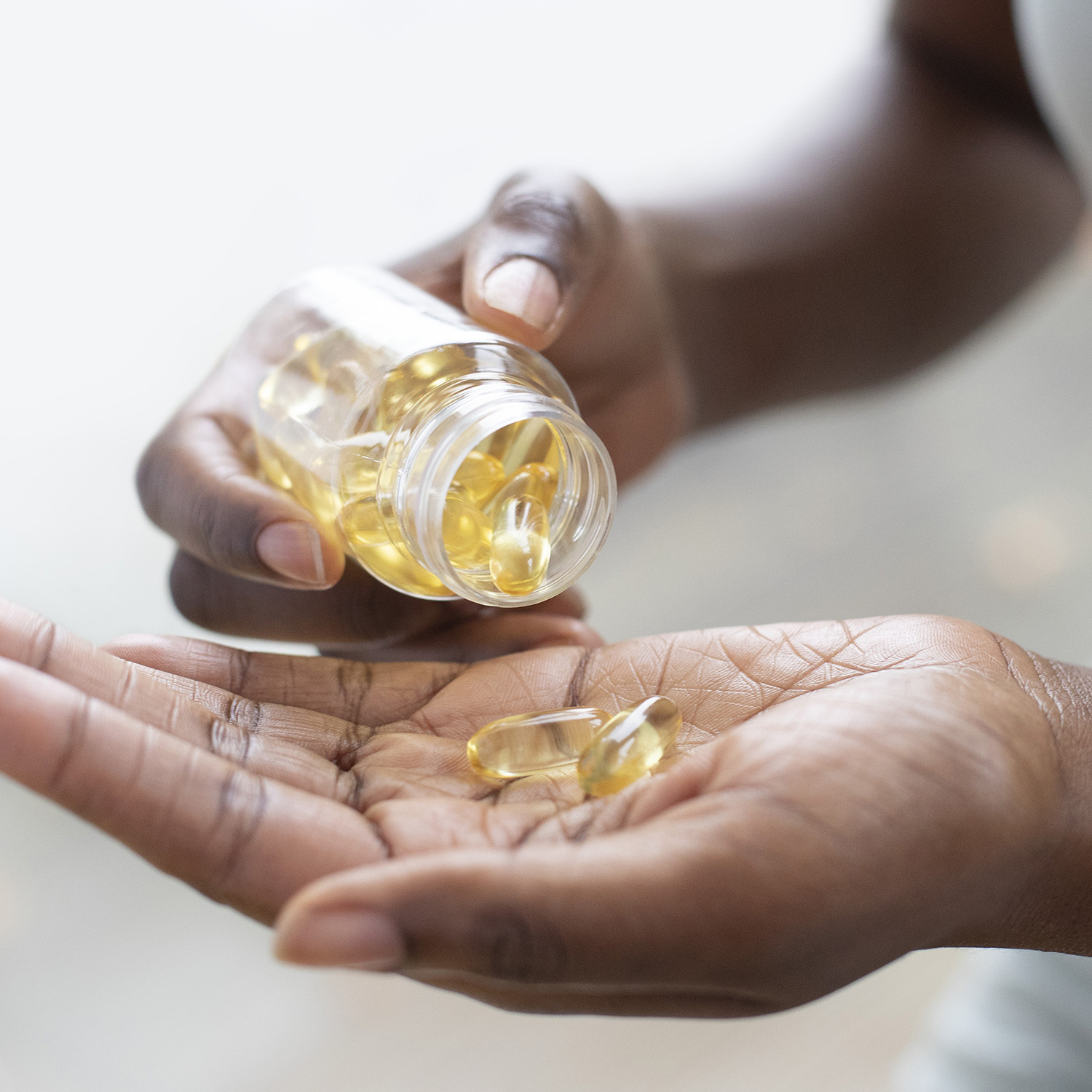 16 Essential Vitamins Every Woman Needs—and Might Not Be Getting Enough Of
16 Essential Vitamins Every Woman Needs—and Might Not Be Getting Enough OfTo help you feel good.
By Sarah Yang
